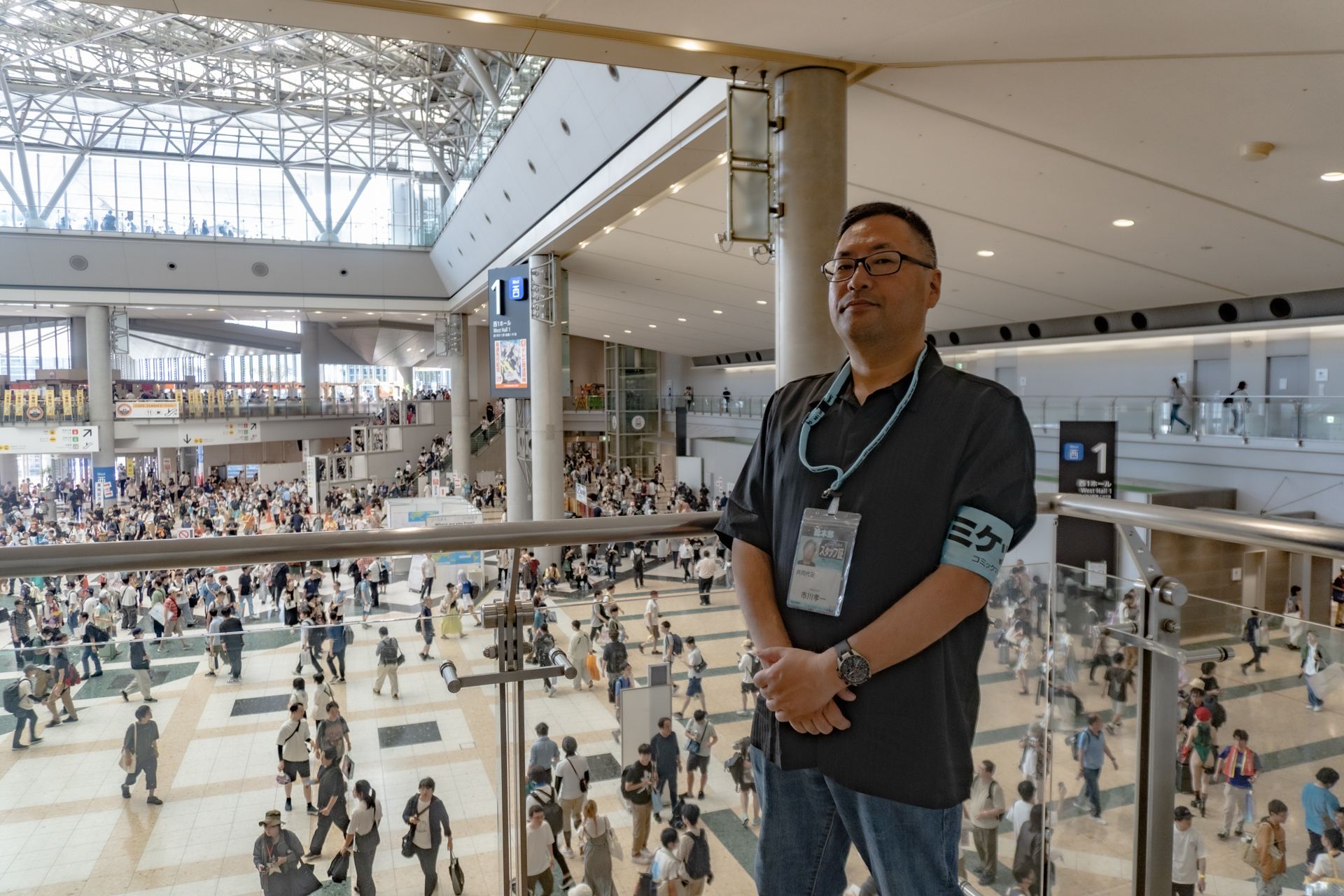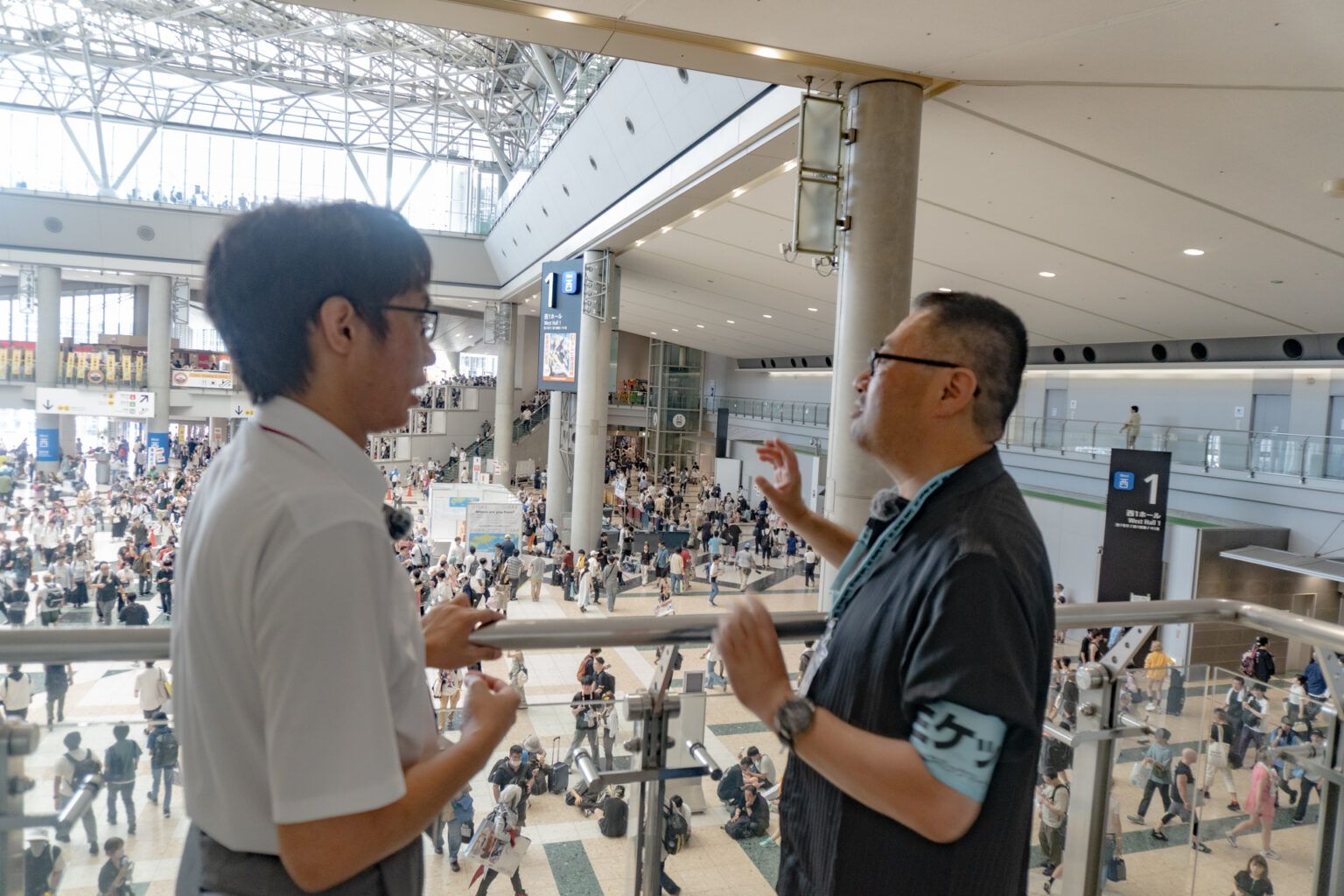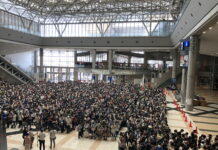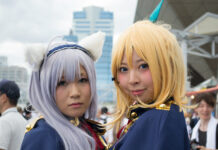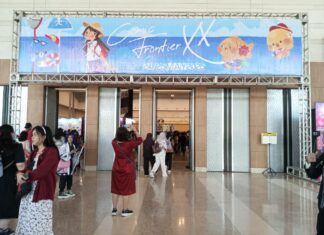Comic Market 104 (Comiket 104) has been held in the summer of 2024 without a hitch. Searing heat and the increase in interest from overseas participants after the pandemic made the post-pandemic Comiket quite different compared to before it, but it still had the same level of excitement as the pre-pandemic events.
During the event, KAORI Nusantara had the opportunity to interview Kouichi Ichikawa (市川孝一), a Co-Representative of the Comic Market Committee, for the second time. In this interview, we talked about the state of the Comiket after the pandemic, the challenges of hot weather, and the culture of comic market in Japan compared to other countries.
You can also read our previous interview with Mr. Ichikawa here.
The interview has been edited without reducing the original meaning.
KAORI: Thank you for taking the time to speak with us. First of all, congratulations on the success of Comiket 104. There are so many things that have changed since the pandemic. For example, now you have to buy a ticket to enter Comiket. We also notice a decrease in total participants compared to before the pandemic. Interestingly, there is also an increase in the number of overseas participants. How do you view these situations?
Ichikawa: Thank you. Indeed, there is a decrease compared to before the pandemic. Comiket also used to be held for three days, but now, it’s only for two days. Thus, regular participants have decreased slightly, but it’s slowly improving.
Regarding the paid entry, we started this during the Olympics. The reason was because the Tokyo Big Sight was being renovated for the Olympics, which led to higher costs. The venue was also separated (in Aomi), and certain rules had to be followed during the pandemic, including limiting the number of visitors. These factors led us to introduce the paid tickets system.
We also sell early entry tickets at a different price. This has some benefits, such as the disappearance of the visitors who came by train at the earliest hour and gathered a few hours before the venue opened. This used to be a problem because we had to make some effort to deal with them. With the introduction of tickets, they were all gone.
KAORI: So there are no tetsuyagumi*?
We call them late-night arrivals, not early arrivals.
KAORI: Now circles can book two tables at once. What is the reason?
After COVID, the number of circles decreased, so we had to accommodate that. For example, if a circle wants to display two items with different genres, they can choose to display item A on the first day and item B on the second day or exhibit them on the same day but with two adjacent tables.
KAORI: According to some reports, the number of participants from fujoshi circles is decreasing. After COVID, there has also been an increase in the smaller events that target the fans of a particular media property (e.g., the Reitaisai for Touhou Project). Moreover, circles now can distribute their work on the Internet via online platforms. What do you think about those phenomena?
Those trends have already started before the pandemic. Currently, the duration of anime series is getting shorter, many only having 12-13 episodes. Comiket is held twice a year, in August and December. Meanwhile, there are four anime seasons in a year. Circles sometimes can’t align their schedules with Comiket, so some choose to participate in those smaller events. Regarding the decrease in fujoshi participation, this is also unavoidable due to the reduction in Comiket days and a general decline in the number of participants and circles.
KAORI: In Indonesia, comic market events are often associated with the selling of fan made merchandise like key chains. The Indonesian comic market also contains many side events like concerts and guest star appearances. Why has Comiket been able to maintain its emphasis as a market for comics?
In Japan, the doujinshi culture is very significant. For people who want to create doujinshi, printing is easy here in Japan. It is easy to print in small quantities and there are numerous printing offices. This is difficult and expensive to do in other countries. Furthermore, logistics services are also very accessible. Their doujinshi are sent directly from the printing office to their Comiket booth. After the event, the goods are sent back.
Many people have been able to draw since childhood. People in Japan have been accustomed to comics since an early age. It’s easy to buy drawing paper and drawing pens here, and those who read often end up making their own doujinshi. If they want to publish original comics, they can submit their work to comic publishing companies.
The infrastructure to support the printing culture has existed since 1975, much longer before Comiket itself existed. In fact, in Japanese history, the culture of publishing books dates back to the Edo period, when the Japanese made ukiyo-e and published books. In the 1970s, people also made their own fanzines, magazines containing several homemade comics, which they then published and sold independently.
KAORI: We see that Comiket, as an event, encourages people to vote in the election. We also understand that there have been cases that may affect freedom of expression (e.g., credit card incident).
Actually, it is not just Comiket. Other events like Comitia also invite everyone to vote during the election. The participation of young people in Japan’s elections is very low, so we remind them to exercise their right to vote.
From a political perspective, it is easier now. Back then, when we approached politicians or government agencies, we had to explain the meanings of doujinshi, the comic market, and many other things. Now, it’s easier with more young politicians who understand manga. There is also a member of the parliament who used to be a manga artist (Ken Akamatsu – ed), which helps. So, when we talk to politicians now, 50% of them already understand.
Indeed, some things don’t always go smoothly. But in general, we see doujinshi culture slowly being accepted and getting positive reactions.
KAORI: Right now, the summer during Comiket is very hot, and we can’t ignore the impact of global warming. What are your thoughts about this issue?
We understand very well that printing doujinshi requires raw materials, like paper. We can’t control the effects of global warming that are happening all over the world, but we are doing our part. Starting from this Comiket, we are also donating to organizations that are active in forest conservation.
KAORI: Quite a few participants fainted due to the hot weather. How did the team prepare for this?
We always remind everyone to prepare properly and not underestimate the hot weather. In terms of the venue, we’ve optimized the air conditioning at Tokyo Big Sight. We also collaborate with Otsuka to provide participants with drinking water. Vending machines are also available throughout the venue. Paramedics are stationed at various points. When someone needs help, we immediately come and take them to the medical centre.
KAORI: What message do you have for those planning to attend Comiket, especially KAORI readers?
For everyone who wants to come, please do. Even though we speak different languages, we are otaku. Everyone reads doujinshi. We can meet nakama (friends) who share the same hobbies or interests There are no mere visitors at Comiket—everyone is a participant. So, come to Comiket.
*Tetsuyagumi (徹夜組) is a term that refers to the people who stay overnight near the venue of the event just to enter the venue as soon as the event starts.
The Indonesian Anime Times | Interview by Kevin W | Translation by Eriq Affandi | The Indonesian version of this article is also available here

